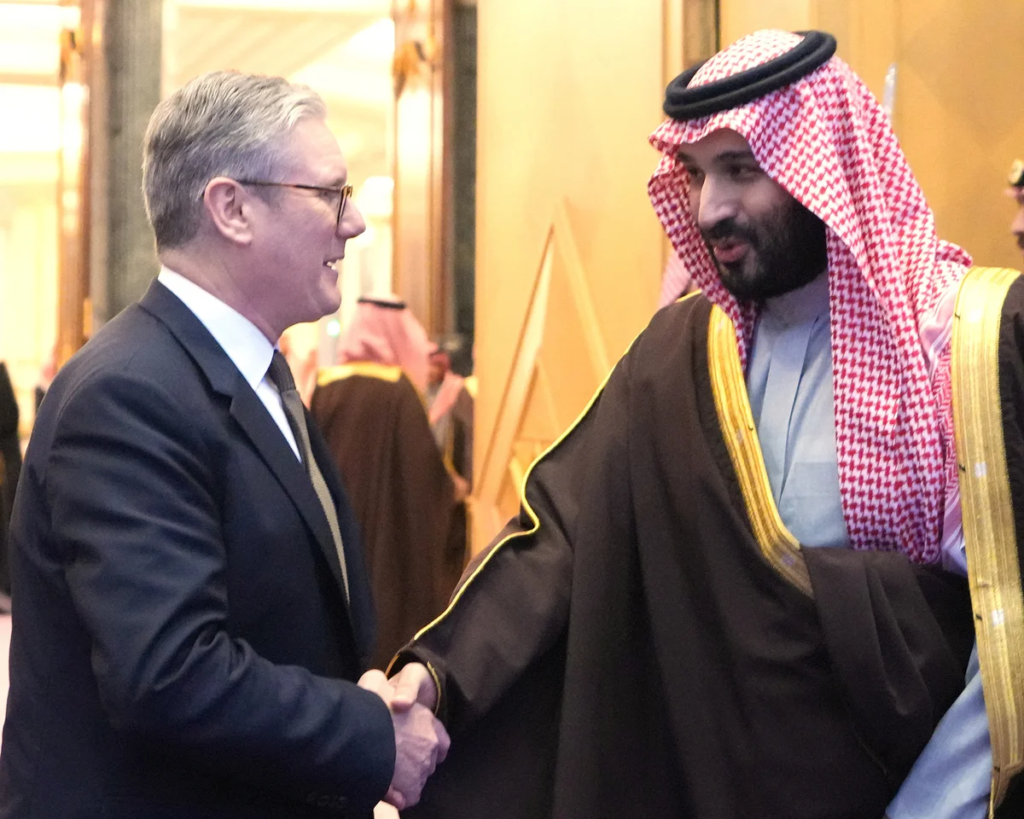Gulf trade talks are quickly becoming the next serious test of the Labour government’s commitment to protecting UK food standards. As the UK government re-engages with Gulf nations on a trade deal, concerns are rising about the potential impact on food quality, farming practices, and consumer safety. This issue is now front and center in national politics — and could define the credibility of Labour’s election promise to defend British food values.
Trade negotiations are complex, but one thing is clear: Gulf trade talks could bring enormous economic opportunities — or expose UK consumers to lower-standard imports. As pressure mounts, the public and policymakers alike are watching closely.
Why Gulf Trade Talks Matter Now
The UK government, now under Labour leadership, is revisiting its strategy on global trade partnerships. Talks with the Gulf Cooperation Council (GCC), a regional union of six Middle Eastern nations, have resumed with urgency. The aim is to deepen ties in energy, tech, and agriculture.
However, agriculture — particularly food standards — remains a point of friction. GCC countries often follow food production methods that differ significantly from British regulations. This includes the use of pesticides banned in the UK, the import of hormone-treated meat, and relaxed rules around animal welfare.
Gulf trade talks therefore stand as a critical marker. Will Labour uphold its pledge to protect British farmers and maintain high food standards? Or will the government compromise in exchange for market access and energy security?
1. Lower Standard Imports Could Harm British Farmers

One of the biggest fears tied to the Gulf trade talks is the import of lower-cost, lower-quality food. GCC countries may push for access to the UK market for meat and produce that do not meet British environmental or welfare standards.
This could undercut local farmers who follow strict, often costlier, food production practices. British farming unions have already warned that such imports could flood the market, damage rural economies, and reduce the incentive to follow high standards.
2. Public Health May Be Put at Risk
Labour pledged to protect consumers from food that fails to meet UK health rules. Yet, Gulf trade talks could pressure the UK to ease certain restrictions. Items like chlorinated chicken or pesticide-laden vegetables — currently banned — might be allowed under compromise deals.
This raises red flags for public health advocates. They argue that if health standards are relaxed to finalize a deal, it sets a dangerous precedent. The public expects clean, safe, and responsibly sourced food. Any step backwards could break consumer trust.
3. Labour’s Credibility on Food Standards is on the Line
During its campaign, Labour firmly stated that food standards would never be traded away. Now in power, the party faces a real-world test through the Gulf trade talks.
How Labour handles this deal will be a reflection of its integrity. If it bows to pressure, critics will accuse it of sacrificing core principles for short-term economic gain. On the other hand, standing firm may delay the deal but show that the government truly means what it says.
4. Trade-Offs in Food Could Set a Risky Precedent
Another risk of the Gulf trade talks lies in the possibility that the UK may open the door for similar concessions in future trade agreements. If exceptions are made for the Gulf states, other countries — such as India, Brazil, or the United States — may demand similar relaxations.
Experts warn that this “slippery slope” could eventually lead to an erosion of hard-won food safety laws. Once standards are compromised in one deal, it becomes harder to enforce them in others.
5. Transparency Concerns May Erode Public Trust
One of the less obvious but equally important concerns in the Gulf trade talks is transparency. Labour has promised openness and stakeholder consultation in all future trade discussions.
Yet so far, details on the progress and content of the Gulf talks remain limited. Consumer groups and environmental NGOs are calling for more visibility. They want the government to publish draft agreements and seek public input — especially when national food policy is on the line.
A lack of transparency could hurt Labour politically and damage the public’s trust in the negotiation process.
What Labour Must Do Now

To navigate this challenge, Labour must strike a fine balance between trade growth and food integrity. Here are key steps they can take:
- Set non-negotiable red lines in all deals, particularly on banned substances and welfare rules.
- Engage with stakeholders, including farmers, scientists, and public health experts, throughout the negotiation.
- Increase transparency by releasing summaries of negotiation points and impact assessments.
- Educate the public on the goals of the deal and how standards will be protected.
If Labour can deliver on these fronts, it may not only protect food quality but also redefine how trade deals are handled post-Brexit.
Conclusion: A Deal That Will Define Labour’s Legacy
Gulf trade talks are more than just another economic negotiation — they are a test of values, governance, and public responsibility. For Labour, this is a chance to prove that modern trade can coexist with strong protections for food, health, and farming.
The coming months will show whether the government can uphold its promises or face backlash for broken pledges. Either way, the outcome of these talks will leave a lasting impact on how the UK defines its future in global trade and domestic protection.
Also read – Sustainability is a Way of Life: 5 Powerful Lessons by Dr Khan



